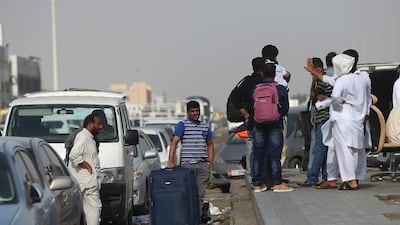What are the costs and benefits of minimum wages in the GCC and beyond?
After the 2008 global financial crisis, government austerity in countries the world over, including the GCC, have made ordinary people very cognisant of wage determination and there are regular calls for a higher minimum wage as a way of helping low-income groups.
The primary factors that govern a worker's wage are the worker's ability to generate revenue for the company and the degree of competition from other workers. Sometimes, this organic wage determination process results in a wage that society regards as "too low to make a living", leading to calls for a minimum wage.
Economists associate two primary downsides with minimum wages. First, they can undermine the interests of the precise group they are intended to assist, primarily by decreasing demand for low-wage workers. The wage is the price of labour and if it is forcibly increased, demand for it should contract, just as it would for apples.
This backfire can be especially damaging for the young, whose lack of job-relevant experience means they can only earn low wages; under unrestricted labour markets, as they build their resumes, their productivity increases, and so do their wages. Enforcing a minimum wage may price some of them out of the market. Moreover, it can accelerate the speed with which robots and self-service kiosks are deployed as a replacement for low-skilled labour. This is one of the explanations offered for high youth unemployment in Europe, where minimum wages are high by international standards.
The second downside is that minimum wages hurt the companies that are forced to bear higher costs. Proponents of higher wages often envisage giant corporations such as Microsoft, that distribute billions of dollars of profits to their wealthy shareholders, as being the archetypal “loser” from a minimum wage, a scenario in which they regard minimum wages as a transfer from satiated fat cats to the needy poor.
In fact, in most countries, the largest share of employment comes from small- and medium- enterprises (SMEs), which make limited profits. Minimum wages will hurt their bottom line, and will limit their growth, which otherwise constitutes a key source of job opportunities.
One alternative to a minimum wage that yields the same upside, while largely eliminating the downsides, is means-tested income support, whereby the market determines wages without restriction but the government “tops up” the wages, possibly to the level associated with the proposed minimum wage. By funding it from general taxation, it limits the effect on SMEs; and by letting the wage employers pay be determined by the market, it eliminates the backfiring effect from low-wage workers being hired in smaller numbers.
In the GCC the labour market looks different because the government sector, and not SMEs or large corporations, is the largest employer of nationals and wages often exceed what can be justified by the market value of the tasks workers perform. In this situation, raising the minimum wage is largely similar to the alternative of the government topping wages up because the government can commit to not cutting employment, unlike a profit-maximising company would. As a result, in the GCC, the traditional drawback of a minimum wage is smaller than in a conventional economy.
This option is feasible and possibly even desirable when governments are so well resourced because of, for example, oil revenue that they can afford to pay exuberant wages. Yet, these are rare circumstances and as the GCC countries are seeing, they can be transient too. Therefore, it is important for policymakers the world over to appreciate that minimum wages are not the Robin Hood policy their proponents perceive them to be; they can hurt many stakeholders, including the ones that they are designed to help.
Omar Al Ubaydli is the programme director for international and geopolitical studies at the Bahrain Center for Strategic, International and Energy Studies, and an affiliated associate professor of economics at George Mason University in the US.
We welcome economics questions from our readers via email (omar@omar.ec) or tweet (@omareconomics).
business@thenational.ae
Follow The National's Business section on Twitter


